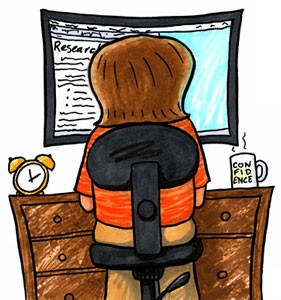Why do you want an accountability partner/coach/whatever for writing?
The things you most dislike about your job, and that you would not do if an external body did not require them, have accountability to that external body built in.
You do your grading. You do it by the institutional deadline. You set aside important work to do it. (I have never heard of anyone missing this aspect of academic work after they leave.)
Your writing and research is the reason you ended up doing a PhD and becoming an academic. You want to do this. You also have external accountability in the form of promotion guidelines, tenure requirements, and so on.
 You don’t need accountability. You need confidence.
You don’t need accountability. You need confidence.
You need to believe that this work that you want to do and that you love doing (even when you hate it) *is* real work.
You need to believe that you deserve the time to do this work.
You need to believe that given the choice, you do the right things.
What’s wrong with accountability?
AcCOUNTability leads you to focus on the things you can count:
- words
- publications
- rates of production of words or publications
- time spent doing tasks that look like Real Work
At the institutional level, we identify this as bureaucracy, and are critical of its application to the creative work of knowledge production.
And yet, at the personal level, the “chimera of absolute transparency, consistency and fairness” is indeed (if perversely) attractive. (Graeber, in Glaser, Bureaucracy: Why won’t scholars break their paper chains, THE, May 21, 2015)
If not acCOUNTability, then what?
If, as Graeber argues, “at the heart of bureaucracy is a fear of play, of creativity” and if “numerous studies illustrate how creativity is inhibited by the restriction of autonomy, the hallmark of bureaucracy” then claiming freedom and autonomy and making time for play and creativity is the solution.
You need trust.
Trust in the creative process (and a willingness to face other fears along the way, like fear of success, fear of being too big, fear of rejection, …).
Trust that your institution will recognize and accept the outputs of your creative process.
Trust that others will read your work.
Trust that others will be inspired by your work.
Trust that others will acknowledge your role in the creation of that knowledge.
You will also benefit from support
Support that helps you trust.
Support that builds your confidence.
Support that reinforces your permission to play.
Support that acknowledges that creative work is not always countable.
The problem with accountability is that it may be effective at getting you to write and finish things but at the cost of eroding your trust and confidence.
What kind of support would help you do the creative work you want and need to do?
Related Posts:
Thoughts on accountability, deadlines, goals and so on.
I’ve written a series of posts on Confidence, you might start with Where does confidence come from? Part 3: support
Spotlight On: Confidence I also expanded the theme of Confidence into a full Spotlight featuring everything I’ve written about it.
Edited to add related posts June 1, 2017. Re-edited July 2025.









Some of the comments I received on Facebook have got me thinking more about this and I want to add a question:
Are you calling all support “accountability”? What effect does naming have?
I don’t think you should be able to do all the work you want and need to do without any support. I am asking questions about particular forms of support.